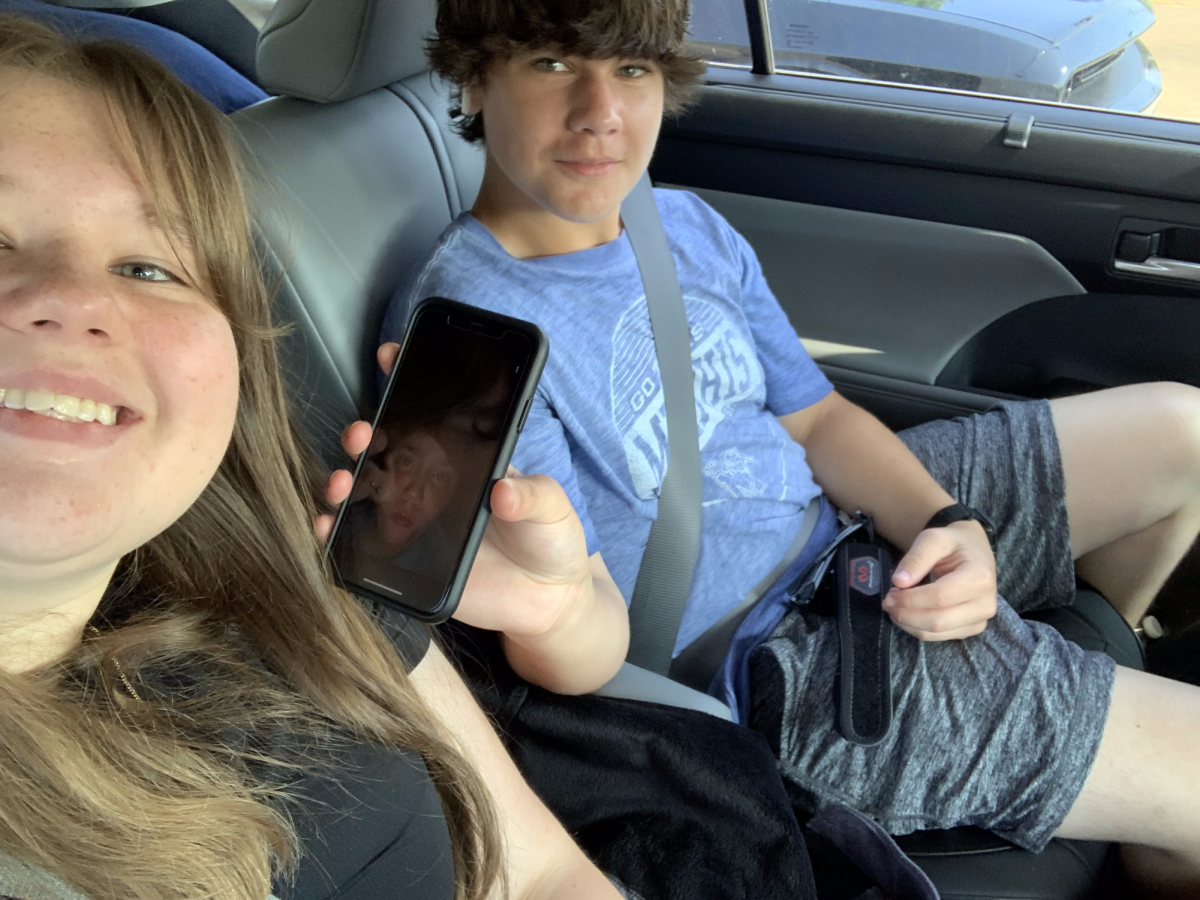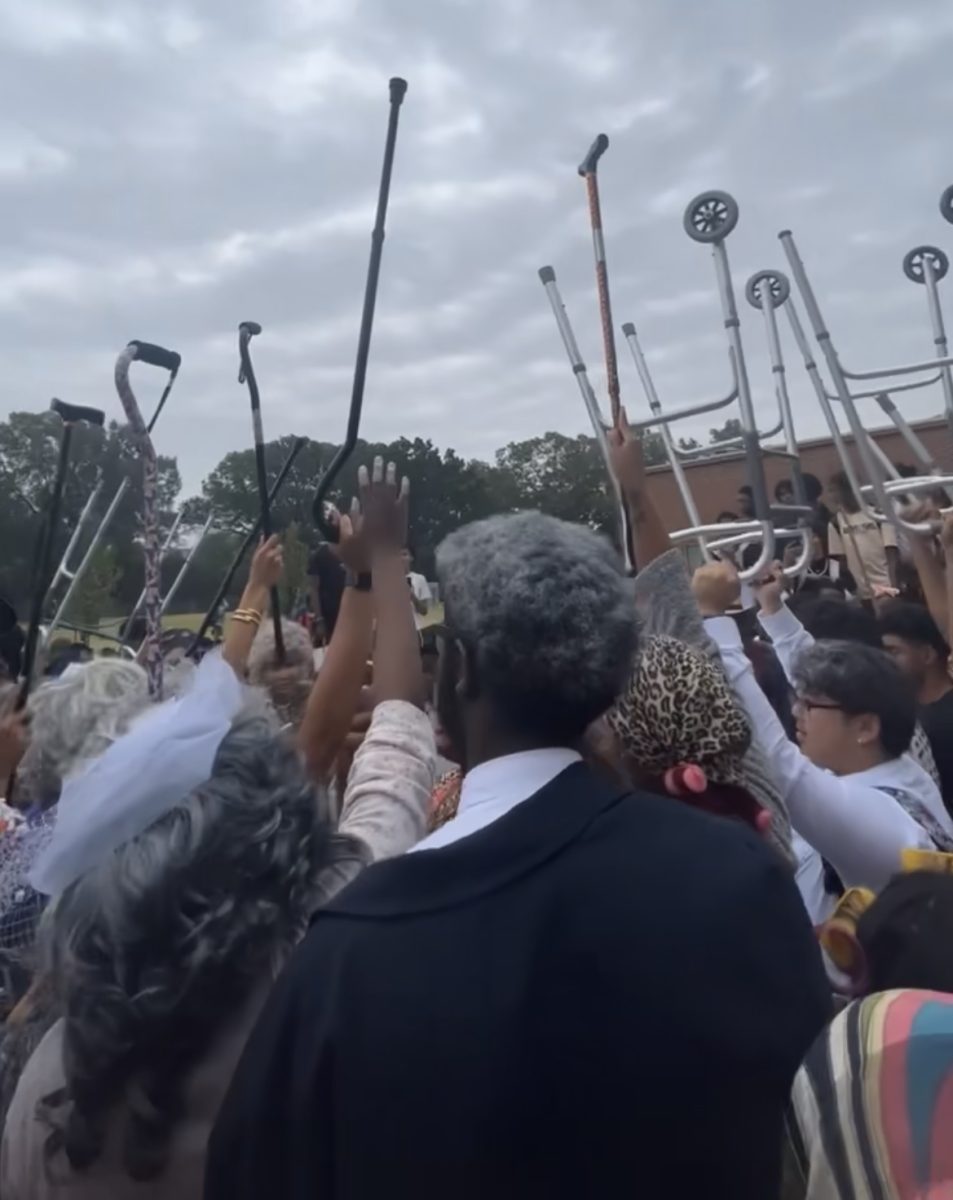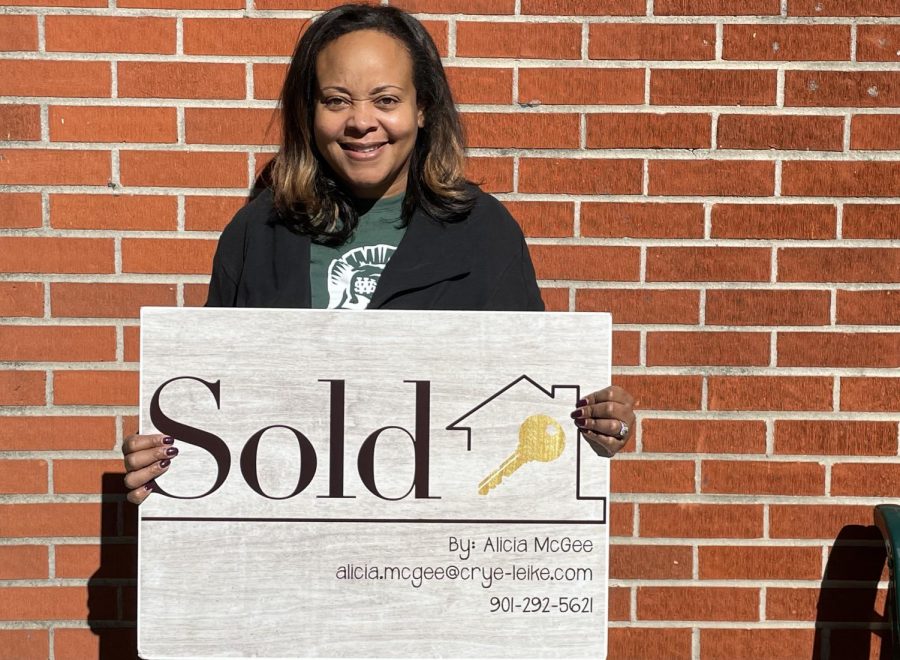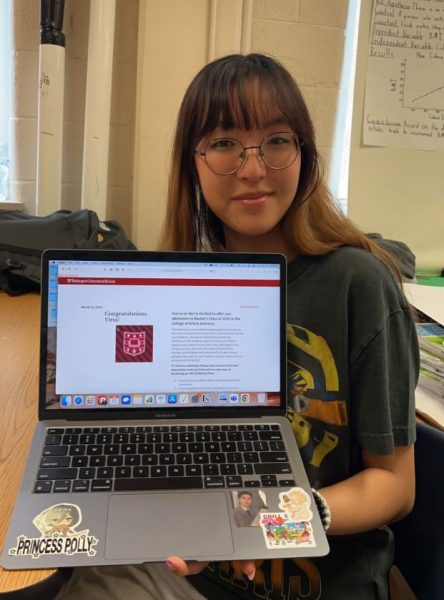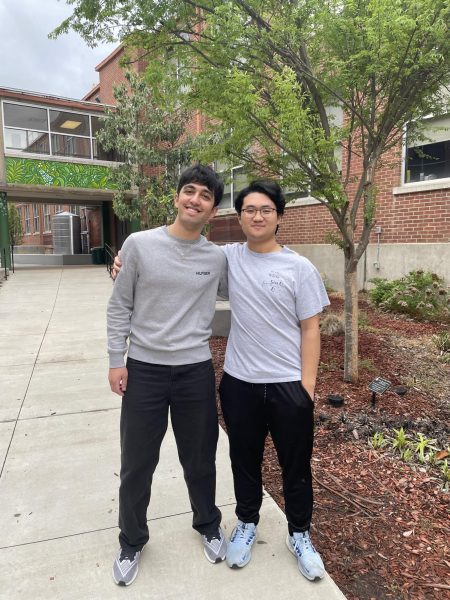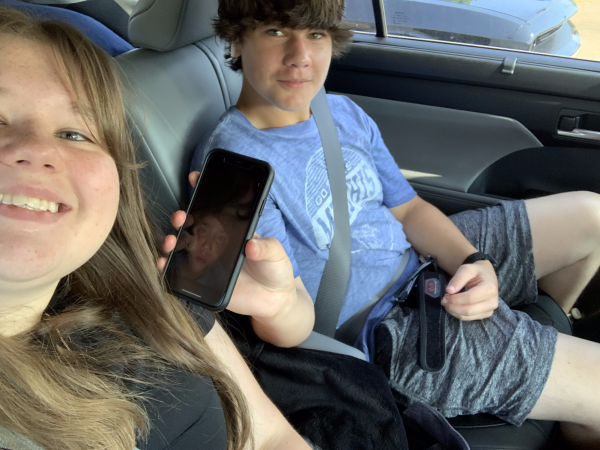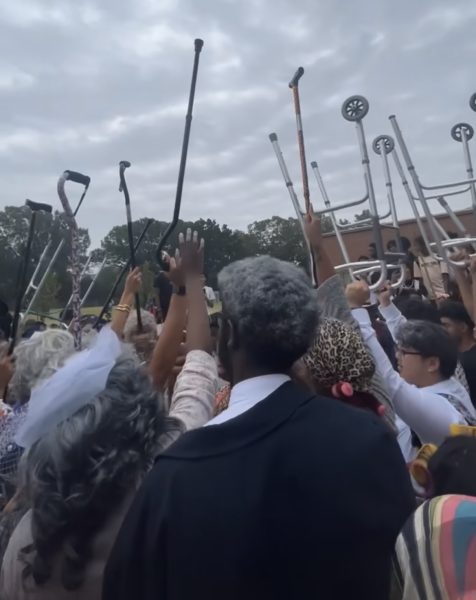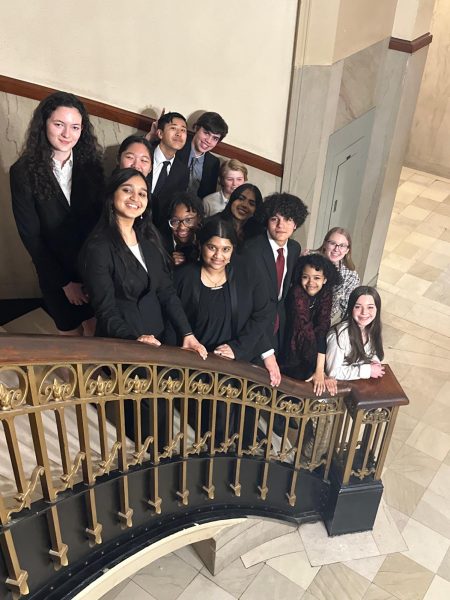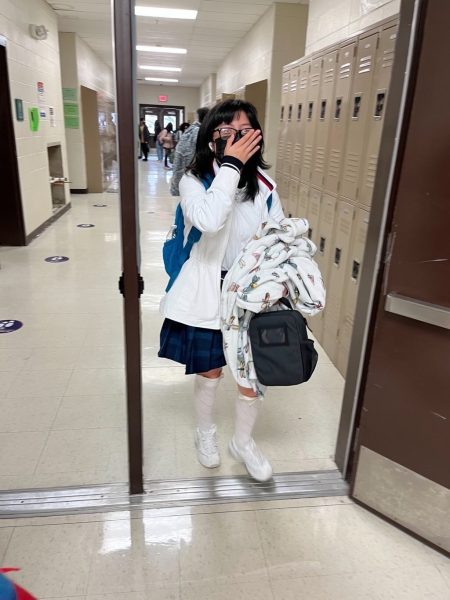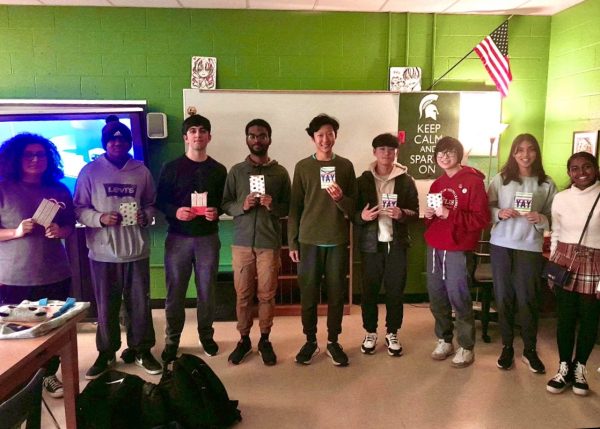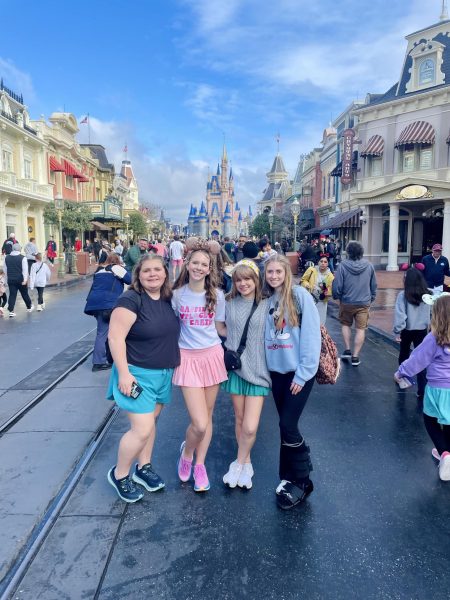Students and teachers get involved in the future of real estate
Alicia McGee holds up a personalized sign she gives her clients when they purchase their homes. McGee is a certified realtor in addition to an environmental science teacher.
Whether it’s helping people sell their homes or helping them buy their dream house, real estate agents are an essential part of American life. Most of these agents are in the 30’s and 40’s age range, but now, many high-schoolers are planning to become one as soon as they graduate and taking on the many responsibilities that the job entails.
“[Real estate agents] help people [by] advising them on where to go to help build their credit, getting with their mortgage officers … what they need to do to get ready to buy a house, guiding people through the process of selling or listing a house, or investing, advising them on what loans they can qualify for, what programs,” Alicia McGee, an environmental science teacher at White Station and realtor, said.
While many students hope to work in this career because of the multiple benefits it provides, others were suggested to this career by family members and friends.
“My brother was involved in real estate for a long time … so I’ve always just had a passion for business and real estate,” Fares Sakaan (12) said. “You could say he took me under his wing, and I learned a lot of stuff from him.”
Aspects like having to be social, being able to have control over their hours makes the field appealing to the youth.
“Real estate is involved in many other business aspects, so the more you know about real estate, the more connections you get, the more people you meet, and you just grow your knowledge,” Sakaan said.
Working in real estate is not always pleasant. McGee, who has had plenty of first-hand experience as a realtor, knows of the struggles found in this career.
“[It is difficult] dealing with banks … mortgage companies that take a long time to do closings [or] people that back out of deals at the last minute after you’ve spent a lot of time with them,” McGee said.
Despite the obstacles, many students still see themselves working in real estate. From helping a family buy their first house to helping an older couple buy their retirement home, real estate agents can become deeply involved in the lives of clients.
“[I’m looking forward to] building connections and also letting people buy homes,” Narjis Alabes (10) said. “It’s a big part of someone’s life, so it’s cool to be the one who [helps them].”
Although many people work in real estate full-time, this career can also be used as a side job. Sakaan plans to work in real estate before heading to medical school and continue to work in it after he hopefully becomes a doctor.
“I don’t plan on having [real estate] as my main career, but I’d always like it for a side hustle, a hobby and just a way to make extra money,” Sakaan said.
The process to become an agent takes relatively few steps compared to other jobs: enroll in a pre-licensing course, pass the licensing exam, activate the real estate license and join a real estate brokerage. A student can take the pre-licensing courses before turning 18 but must be 18 before they take the licensing exam. This low age requirement has helped Sakaan and Iain Campbell (12) work in advance.
“We’re going to get [our licenses]; we’re already taking courses,” Campbell said. “So, once we turn 18, probably even the first week, we’re going to get our [licenses].”
Going further, not only have Sakaan and Campbell begun taking courses to take the real estate exam, but they have also started learning how to wholesale from Sakaan’s brother. Currently, they help him renovate old houses, modify the contracts and sell the houses.
“Wholesaling is one of the things that you can start right when you turn 18, so we’ve already started on that,” Campbell said. “We’ve started looking at houses … that we can buy once we turn 18.”
McGee is also willing to explain to curious and clueless students the process of becoming a real estate agent and speak as a reliable source of experience.
“I just let [students] know where they need to start,” McGee said. “Let them know what type of fees are involved, what type of tests they will have to take [and] the benefits of being with different brokerage firms.”
Whether it’s as a side hustle or a career, becoming a real estate agent because of its benefits is something every student could consider for their future.
“You want to be social [because] you meet a lot of people, you talk to a lot of people in real estate, and you want to be able to make connections with other people,” Sakaan said. “That’s how you grow your business.”
Your donation will support the student journalists of White Station High School. Your contribution will allow us to purchase equipment and cover our annual website hosting costs.



